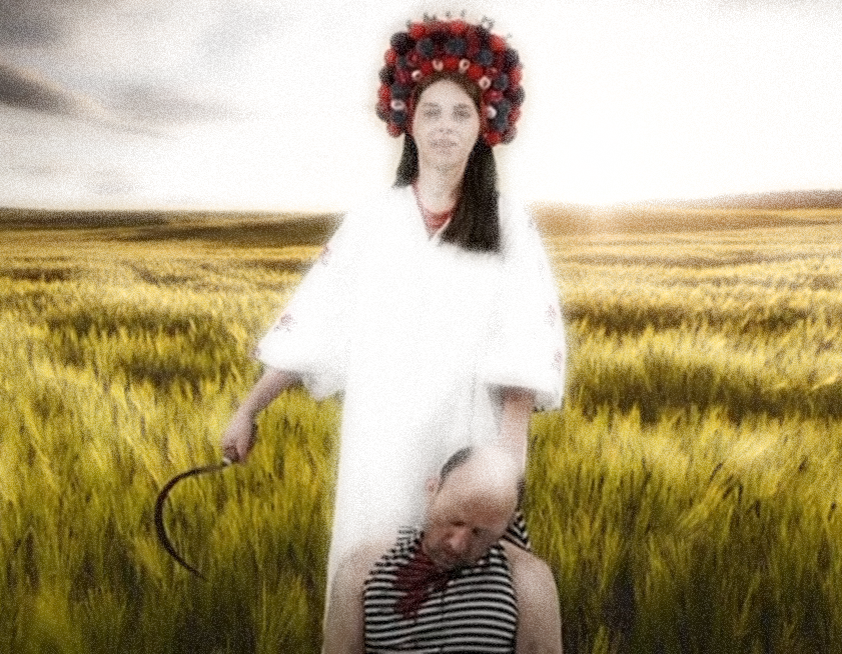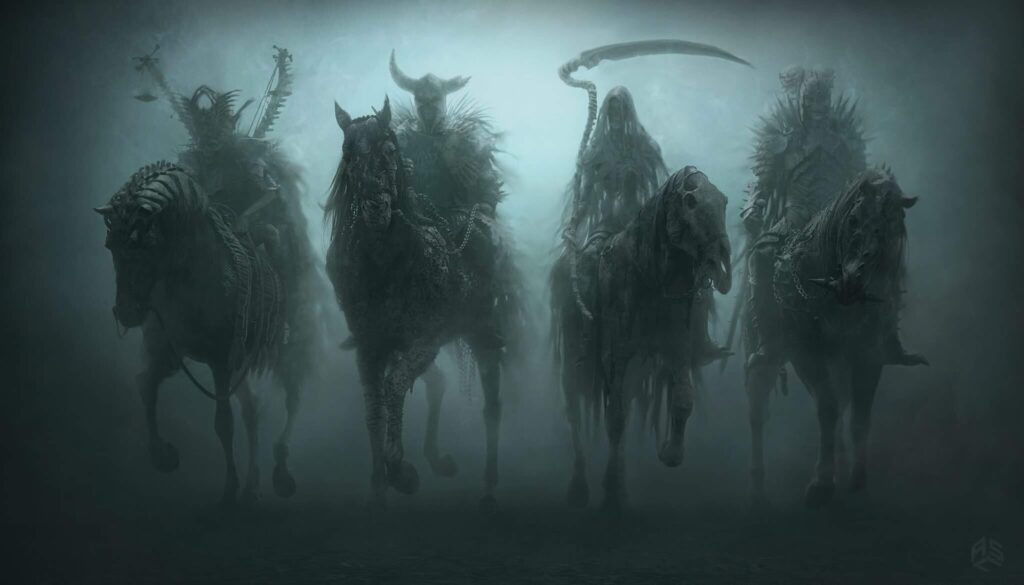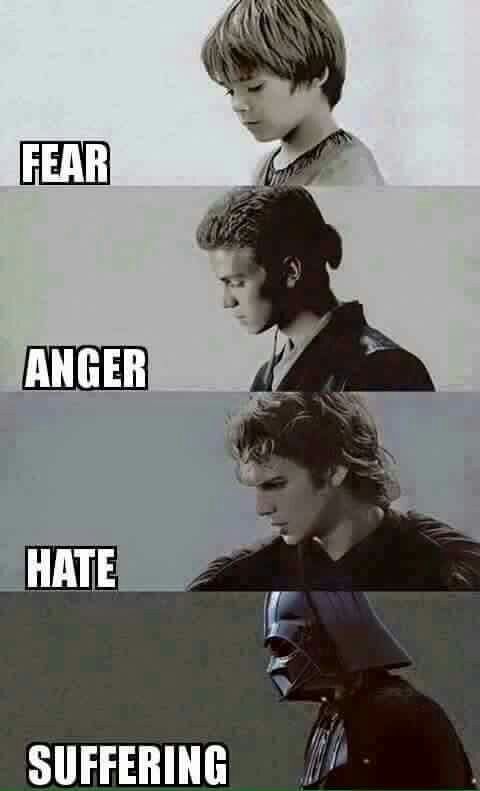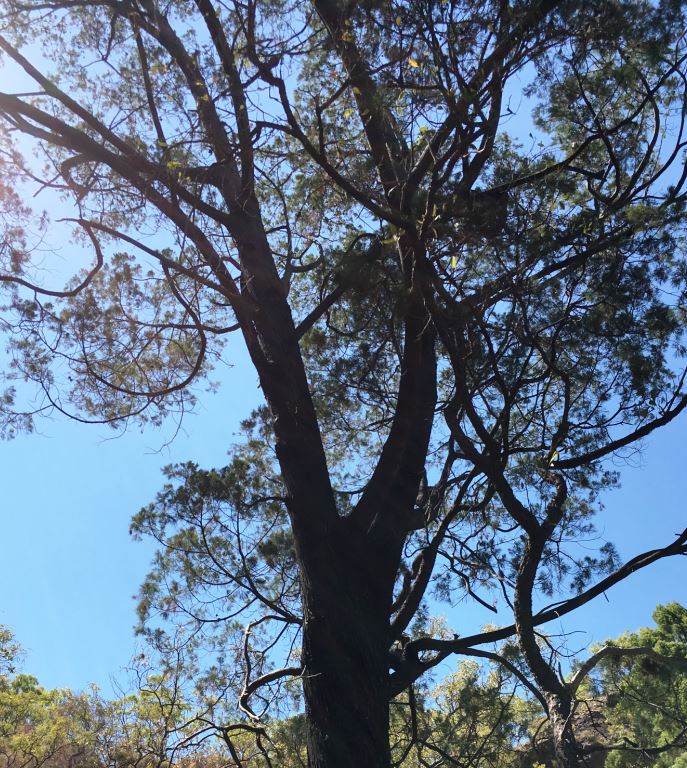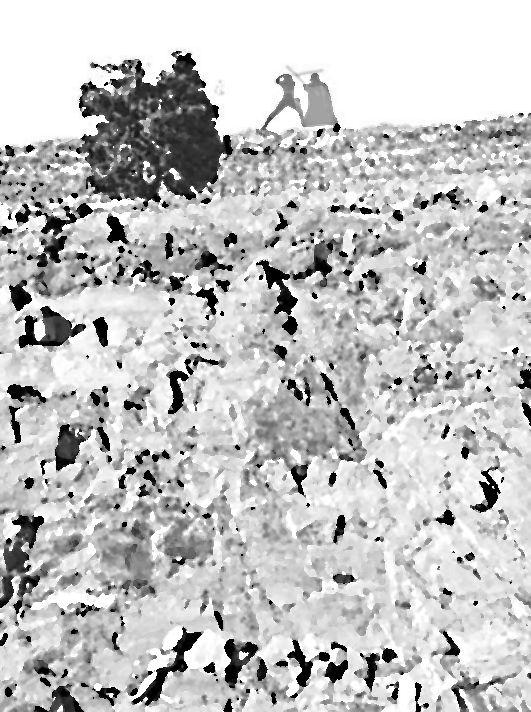
“Training to become a Jedi is not an easy challenge. And even if you succeed, it’s a hard life.” – Qui-Gon Jinn
Safe and Warm
Sometimes I find it a struggle to get out of bed and face the day. My automatic preference would be to remain in bed, warm between the sheets and let the world go on without me. With effort I will get up and start my morning routine. I resolve to face the days challenges and I remind myself “one day a time, one problem at a time”. The mental fog begins to clear as plans take shape. At times I struggle to find the motivation to do my work. Soon enough the day is done and hopefully I have something to show for it more than a made bed (make the bed every morning if nothing else).
“On those mornings you struggle with getting up, keep this thought in mind – I am awakening to the work of a human being” – Marcus Aurelius
The Roman Emperor and Stoic Marcus Aurelius also struggled out of bed in the cold dark mornings while on campaign in the frontiers. The security of the empire weighed heavily on his shoulders, it was his cross to carry. Marcus arose each morning to make life and death decisions, fight the enemy and bury his fallen soldiers. He had to contend with cut throat politics and betrayals and the constant demands of Rome. All of this while he struggled with poor health, a troubled son and self-doubts. Marcus Aurelius saw these struggles as mere obstacles in his mind that could be overcome. Who could envy such a position? Despite the burdens, Marcus Aurelius saw struggle as a path to enlightenment and obstacles as the road markers along the way.
“I am ready to face the Trials.” – Obi-Wan Kenobi
Life Struggle
To be alive is to struggle. Being human simply makes us aware of that struggle and allows us to quantity and qualify it in a subjective manner, to give it meaning. All living things struggle, that is the nature of evolution after all. It is no wonder that the human experience is inherently one of struggle but more importantly it is our innate ability in overcoming the challenges that life presents us that makes us unique. We can choose to suffer passively or struggle against suffering. The Stoics compared life to a wrestling match. At times we will get pinned down and forced in to submission and sometimes we end up on top. The important thing is we are in the ring willing to struggle.
Our struggles are those that reside within resulting from the things life throws at us and which we have little or no control over. Generally our struggles are an emotional response to life’s vicissitudes. It is not so much the thing that hurts or offends us but how we perceive it and how that perception affects us emotionally. The trick is to look at struggle in a different way. Victory over external struggles is usually contingent upon overcoming internal struggles. The struggle is no longer a barrier but an obstacle we work to overcome.
“You’re imperfect, and you’re wired for struggle, but you are worthy of love and belonging” – Brene Brown.
Pushing Back
People face terrible struggles in life, many which I am fortunate enough not to suffer. I am not impoverished or unemployed, my mental and physical health is good. My family life is good. I am one of the lucky few to be working in a profession which I chose, was trained for and pays well. My sobriety is solid. I do not face persecution or discrimination. Compared to many in this world my life is blessed.
All that could change in an instant. What we have can be easily taken from us. People lose their jobs and livelihoods, their physical and mental capacities can fail, life’s saving and property can be taken away in an instant and their loved one’s can leave or die. Homelessness is a real possibility. Innocent or not, we can find ourselves in prison. The democracy and justice system we enjoy could be corrupted or overthrown. Peace may be shattered by war. Take nothing for granted. I try not to. It’s a good idea to remind ourselves that all things are impermanent. Life can easily pull the rug from under us.
I could pour myself a drink and lose everything that sobriety has bought as I spiral back in to active alcoholism. To suffer is inevitable but to struggle is largely a choice. There are those who suffer passively but do not struggle. To struggle is to push back against the suffering. Through struggle we have a chance to get out of suffering.
“There’s no coming to consciousness without pain.” – Carl Jung
Struggle = Meaning
Most people define “happiness” as their goal in life and they struggle to achieve whatever their ideal of happiness is. For some it may be a “perfect partner”, great job, successful career, plenty of money, adoring and loyal friends and admirers. Others may decide that happiness is a poor word for an internal state that might be best described as Eudaimonia. I’ve met people who are content in their suffering and victim-hood as if it was a good thing and do nothing to get out of it. I have also met people who find a deep sense of meaning, purpose and fulfillment in the struggle to overcome their obstacles and be the best version of themselves possible.
“The probability that we may fail in the struggle ought not to deter us from the support of a cause we believe to be just” – Abraham Lincoln.
People often grapple with the mystery of meaning and purpose; why am I here and what am I supposed to do with my life? Making choices that must be made and the uncertainty that haunts me. Accepting the certainty that one day my children will become independent adults and I will grow old and frail. Facing the inevitability of death. This is the human condition. Loss and change is a part of life. We have a capacity as rational human beings allows to choose how to respond to that and give it profound meaning.
We are not alone in our struggles. Would it be better to embrace struggle rather than avoid it? Should we seek to struggle knowing that the suffering it brings is a path to serenity and peace? Through struggle we are no long a victim or passive object of suffering. We no longer suffer in vain because we struggle. In our struggle we validate and own the suffering that we feel and we choose.
“You must…confront…Vader. Then, only then, a Jedi, will you be. And confront him, you will” – Yoda
Trials
To become a Jedi in the Star Wars Universe a Jedi apprentice was expected to undergo a series of five trials which challenged their mental, spiritual and physical limit. In rare cases a Jedi was knighted because of their actions rather than going through the formal trials. The action usually involved an intense struggle in overcoming a penultimate personal challenge. The ordeal ultimately defined the Padawan as a Jedi Knight. Obi-wan Kenobi’s trial was facing Darth Maul in combat after his Master, Qui-Gon Jinn, was struck down. Obi-wan conquered his fear and overcame the challenge defeating Darth Maul.
Luke Skywalker became a Jedi Knight when he confronted Darth Vader and through reason and compassion redeemed Anakin and defeated the Sith.
Ahsoka Tano framed for terrorism and treachery fought desperately to clear her name to the Jedi Council. Mace Windu recognized her struggle and offered her Knighthood however she refused and left the order disillusioned.
Anakin achieved Knighthood through his bravery on the battlefield. Despite his rank he suffered terribly but never struggled in the way that matters. Anakin’s failed to struggle with his own demons and as a result he never overcame them. He showed skill, prowess, courage and intelligence yet his struggles were directed at others and the things he had little control over. Anakin struggled against a galaxy of injustice, corruption and greed which was noble but the means he applied did not always justify the ends. Death and mortality haunted Anakin. By trying to struggle vainly against the natural order of things Anakin played in to the hands of the Sith and fell to the Dark Side.
This is not to say that people should not struggle for freedom or justice or the causes they believe in. They absolutely should. Struggle should however, be transformative, leading us away from suffering through suffering. It should not cause others to suffer. One’s struggle should inspire others and be borne of sacrifice, love and virtue. We should struggle for the right things, in the right way for the right reasons.
“A warrior in not born. He is the sum of the sacrifices he has made” – Klaus Yohannes
Crucified
In the bible Jesus struggled along the Via Doloros on his tortured journey to crucifixion. Jesus was beaten and flogged by his guards and abused by spectators as he dragged the heavy wooden cross through the streets to Golgotha. Along the way Jesus endured unimaginable pain and mental anguish. According to the gospels he was nailed to the cross and hoisted up to suffer a slow and excruciating death yet he chose to forgive those who tormented him rather than condemn them, surrendering instead to his fate. Through suffering and death came redemption, resurrection and salvation. The story of the crucifixion is a reminder that the pathway to physical, mental and spiritual growth and fulfillment is won through great struggle.
Klaus Yohannes, the Black Viking of London describes how his constant pursuit of struggle has made him the man he believes he was always meant to be. Struggle he believes is something we should seek out and embrace every day. Security is an illusion. The warm bed and easy way prevents us from reaching our potential. To prove his point he has spent years pushing his body, mind and soul to the very limits and beyond. In that zone of harrowing struggle he has found purpose, meaning and redemption.
On April 14th, 2019, Klaus Yohannes endured the passion of the crucifixion. Although he was not physically nailed to a cross, mentally he was. Yohannes carried a 60 kg (132 pound) sleeper on his back and walked bare chested and barefoot 7.2 miles through the streets of London. He stumbled, fell, crawled and walked one agonizing step at a time. The trial nearly killed him as the weight of the sleeper fractured and displaced his cervical vertebrae, bare millimeters from severing his spinal cord. Why? Nor for money or for fame but because he wanted to show himself he could do the unimaginable.
“Strength and growth come only through continuous effort and struggle.” — Napoleon Hill
Seven Sagas
“The Obstacle is the Way” – Ryan Holiday
The ordeal Klaus Yohannes endured was a test of will. From the second mile, Klaus suffered torment and considered quitting constantly but pushed on, ignoring the pleas of bystanders, his support team and his own mind and body screaming at him to stop. The struggle was the point and the way to reaching a transformative state by pushing the boundaries past any limits he had considered imaginable.
Like the trials of a Jedi, the “crucifixion saga” is one of seven sagas that Klaus Yohannes has set himself to undertake on his journey of transformation through the embrace of struggle. The only obstacle he perceives are those in his own mind. With the right mindset, self-discipline and preparation almost anything can be accomplished if we are prepared to overcome our own self-imposed limits. We do not need to embark on near impossible feats of endurance but we can take the attitude “The Obstacle is the Way”.
Klaus Yohannes said “security is an illusion”. We are not made to lie in bed, passive and inactive. Comfort, pleasure and ease may be desirable but they do not sustain us. The safety and security that we enjoy is based on struggles, usually endured by others. Life gives some an easier ride however the world will not deny anyone struggle. Yet, rarely will they ask for it. People like Klaus Yohannes seek it out every day. This is what a Jedi does and why to be Jedi is special.
“The world will deny you many things, it will not deny you struggle” – Klaus Yohannes
Klaus Yohannes – The Black Viking
Forty Percent
David Goggins is another “modern day Jedi” who also espouses struggle as a pathway to greatness and virtue. Goggins refuses to betray himself by being mediocre in any aspect of his life. Failure as a result of his own choices is not an option.
The former Navy SEAL and ultra-marathon runner pushes himself to the absolute limits of physical and mental endurance. The reason for this drive is simple; Goggin’s suffered as a boy at the hands of an abusive father, he was overweight and everything about him was mediocre. One day Goggins decided enough was enough and to change his life. He embraced struggle as the vehicle with which to achieve his full potential and ultimately help others to achieve theirs.
Goggins likes to hammer home a mantra he took from the Navy SEALs “we only commit 40% of our true potential”. Only our own minds are holding us back. If that is true, imagine the possibilities.
“I thought I’d solved a problem when really I was creating new ones by taking the path of least resistance.” – David Goggins
The Obstacle is the Way
“Obstacle is the Way” could be a Jedi aphorism. Becoming a Jedi was no easy feat. It was an incredibly demanding life that required constant struggle and sacrifice. Even then, success was not guaranteed. Star Wars uses personal struggle as a recurring theme because a story without an element of struggle is pointless. The victorious struggle of the hero against the Dark Side is the point of Star Wars. The archetypes manifested in Anakin, Luke, Leia, Han Solo, Yoda, Kylo Ren and Rey all face very personal struggles with loss, grief, betrayal, self-doubt, anger, fear and despair.
Struggle is the underlying message of the “Hero’s Journey”. Struggle underpins the collective mythologies of the human experience including the Star Wars saga. It is not only Human to struggle, it is necessary and a virtue.
“The obstacle is the path” – Zen Proverb
Finding the Path
I still recall the loud blow of a whistle and the shouting that would rudely awaken the Platoon during Boot Camp. The mornings were brutally cold and dark. We stumbled half asleep out of the barracks, getting screamed at and shoved. Like sheep corralled we formed up on the parade square and stood shivering in the snow waiting for roll call. How long we stood depended on how long the Drill Sergeant took to finish his coffee and cigarette. Later on operations in the blistering heat of East Africa the Platoon Sergeant had a habit of always choosing the hardest route for a foot patrol or route march. Up and over mountains we went at an inhuman pace, each carrying more than 60 pounds of kit, wheezing and cursing with each pained step. Easy was not in his vocabulary. We were forced to struggle for a reason. War, if, when it came, would be “easier” if we suffered now. Train hard, fight easy.
I struggled with alcohol and overcame it. Recovery and sobriety is constant a struggle against the ego. It is never good to take the path of least resistance. I must constantly challenge myself and embrace struggle if I am to stay sober.
My life is far from perfect and I do not claim happiness in the ordinary material sense. The pursuit of material things brings no lasting fulfillment. I would prefer to arrive at Eudaimonia as a natural result of virtue. As much as my shadow self, the inner alcoholic, wants me to stay in bed, eat junk, be lazy and drink booze I know these things will only lead me in to ruin. Virtue is my defense. Struggle is the foundation of virtue.
The “Obstacle is the Way”. Struggle counters the entropy of the Dark Side that threatens to engulf us. Through struggle we are reminded not only that we live but that we can only achieve our true potential by overcoming our own inner obstacles.
Further Reading
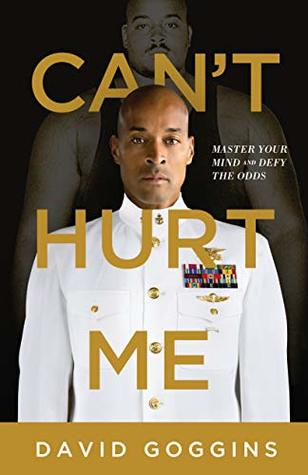
Can’t Hurt Me: Master Your Mind and Defy the Odds by David Goggins. Lioncrest Publishing (December 4, 2018).
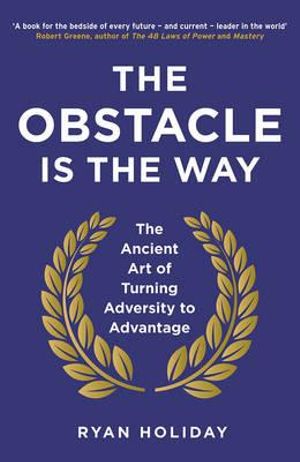
The Obstacle is the Way: The Ancient Art of Turning Adversity to Advantage by Ryan Holiday. PROFILE BOOKS; Main edition (2001)
